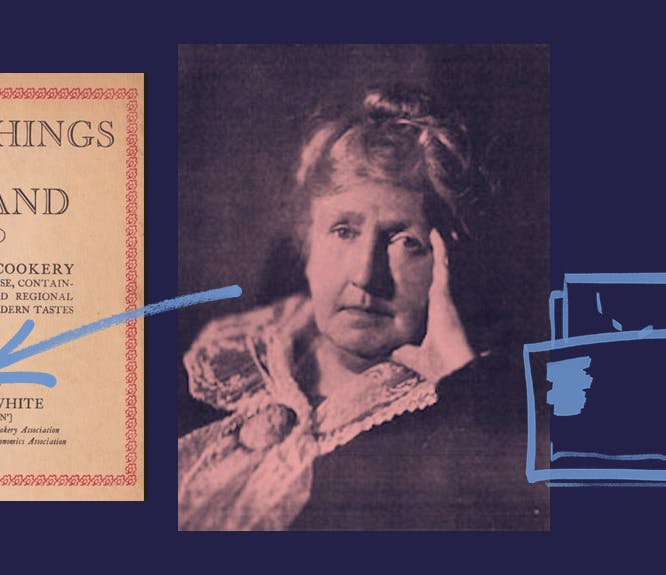Who was the first Black British voter?
3-4 minute read
By The Findmypast Team | October 31, 2020
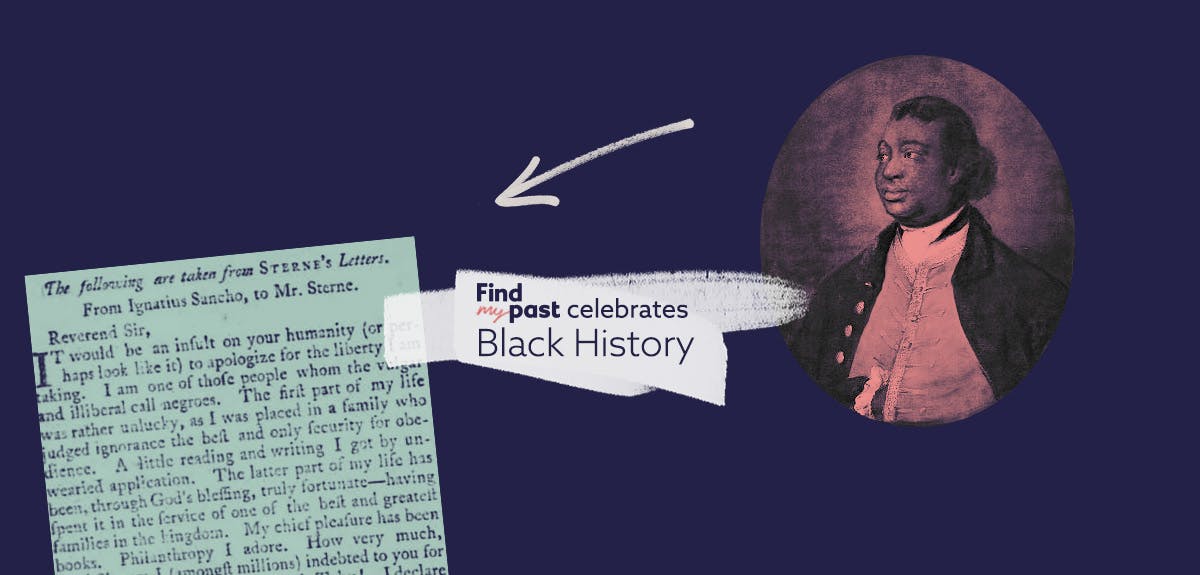
Shopkeeper, writer, musician. Ignatius Sancho was a man of many talents and Britain's first Black voter. Stephen Rigden recalls his remarkable life story.
The franchise in British parliamentary elections has evolved slowly over the years. Before the Peterloo Massacre and the first Reform Act of 1832, the percentage of the adult population entitled to vote in national elections was probably around 5%. The 1832 Act marked the first step forward in widening the franchise but it was modest. In towns, for example, only adult males owning or occupying property valued at or over £10 per annum were entitled to vote.
Further reforms were enacted in 1867 and 1884 but still fell well short of universal suffrage, which the more radical campaigners had been campaigning for since the late 18th century. Universal male suffrage (for men over the age of 21) was achieved only in 1918. Women over the age of 30 were admitted to vote at the same time. True universal adult suffrage did not arrive until 1928 when men and women acquired parity and all adults aged 21 and over became entitled to vote.
In this context, it is clear that the first Black British voter in parliamentary elections would be a male, over the age of 21, presumably with a secure income and living in a comfortable town property. Given the small proportion of people entitled to vote and the modest size of the Black population, you might think that no such Black voter would have existed until the late 19th century or beyond. But you'd be wrong. In fact, it seems that the first known Black British voter in parliamentary elections was casting his vote in the latter half of the 18th century, even before the French Revolution had inspired UK radicals to call for parliamentary and electoral reforms. So who was he?
Charles Ignatius Sancho
A grocer by trade, Charles Ignatius Sancho was much more than a shopkeeper. But it is from his occupation as a shopkeeper, with a steady income and financial independence, that he derived his entitlement to vote.
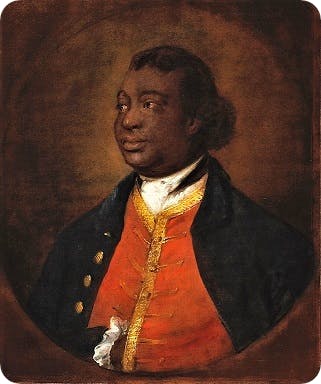
As an adult male householder and ratepayer, he would have met the 'scot and lot' franchise requirement for the constituency of Westminster where he lived. He was entitled to vote in the 1774 and 1780 general elections. We know that he voted for the Whig candidate Charles James Fox in 1780. He died later the same year in December 1780.
A biography called The Life of Ignatius Sancho was published by Joseph Jekyll, a budding lawyer acquainted with the Sancho family, two years later, in 1782. The biography is modelled on those in Samuel Johnson’s Lives of the Poets and is unreliable, or at least unproven, in parts. It claims that Sancho was born on a slave ship making the Atlantic crossing, a child of slaves, but this seems to contradict Sancho's own letters, where he says he was born in Africa and implies he has no family slave-traded to the Americas. It is not clear if or how he came to be orphaned or how he arrived in England.
What is known is that, once in London, he worked as a servant, footman and butler in aristocratic households. He became self-educated, with encouragement from his employers. He read widely, started composing his four collections of music and agitated for an end to the slave trade, corresponding with the great novelist Laurence Sterne.
When he left service, his life as a greengrocer began (with a helping hand from his former employer). Despite illness, he continued to flourish, publishing books, meeting the great and good and writing into the letters pages of newspapers on subjects he felt strongly about. These and other letters were published posthumously, bringing Sancho some fame.

One of Ignatius Sancho's letters, published in Chester Chronicle on 11 December 1775. Read the full article.
A copy of his grocer’s trade card can be seen at the V&A’s website. The engraving promotes “Sancho’s best Trinidado” (tobacco) and also alludes to the sugar and rum he probably stocked.
Like all of the individuals profiled in our Black British Firsts series, Charles Ignatius Sancho was a forerunner in his field and a remarkable person. His life illustrates many of the issues brought to light through the series. There are gaps in knowledge and in the documentary record. There are complexities – the patronage of his former employer helping set him up in business, the awkward irony that as a grocer he seems to have retailed the products of plantations. Ultimately, though, what we see 250 years ago is the will and determination to learn, to succeed and to command acceptance in society through achievement and right.
Related articles recommended for you

Celebrating Black British History: why we’re remembering Black British firsts
History Hub
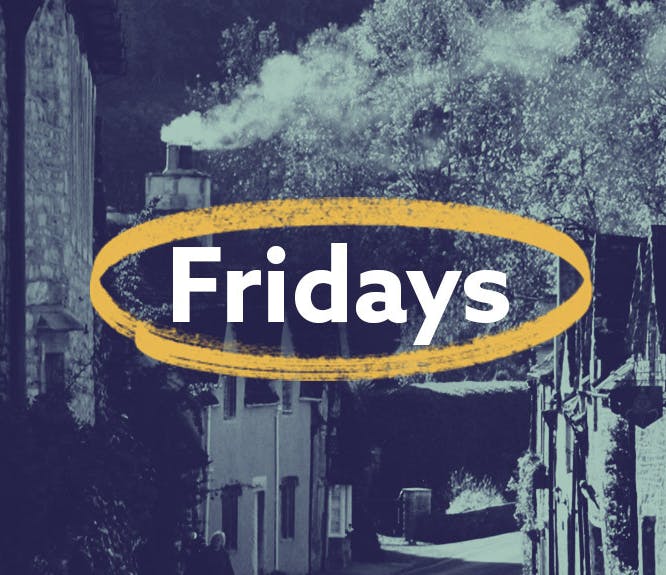
Discover English records spanning over 350 years
What's New?
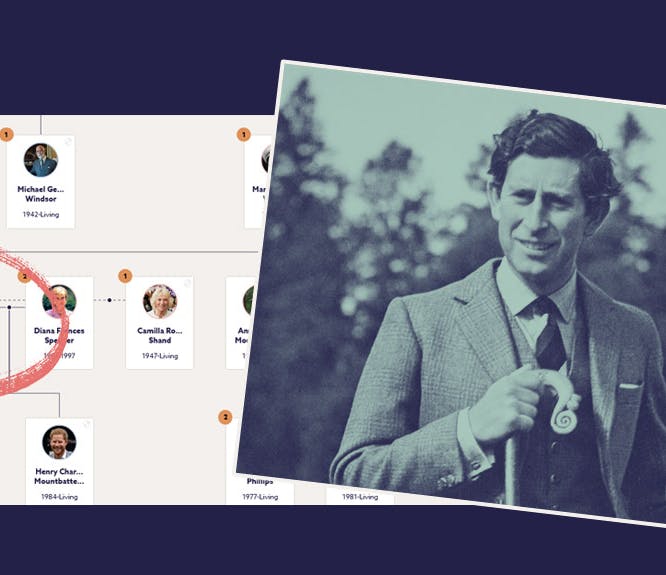
Who's who on King Charles III's family tree?
Build Your Family Tree
